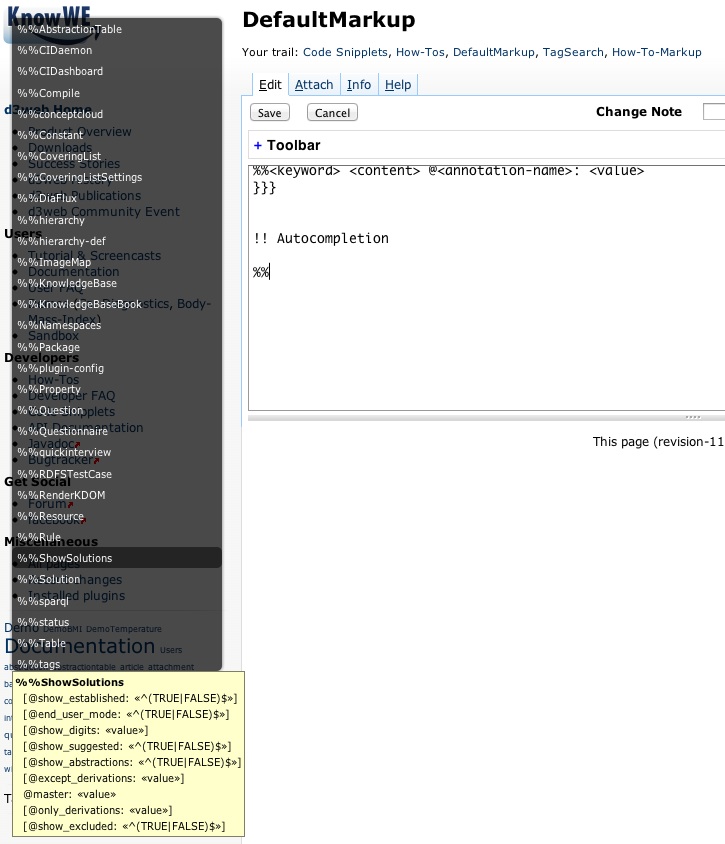Introduction#
The DefaultMarkup is a markup template allowing to create new markups at low implementation workload. Further, the use of this template asserts a consistent structure of all markups leading to a unified look and feel of the system, considering syntax, rendering, and editing support.
This page describes the DefaultMarkup in general. An instructional page describing how to actually create a new markup based on the DefaultMarkup can be found here: How-To Markup
The exemplary use of different kinds of DefaultMarkups can be found in the Demos, for example here: Demo - Master
Syntactical Structure#
A DefaultMarkup section always is introduced by two percent-signs (~)followed by the specific keyword of the markup.
Multi-line markup#
A DefaultMarkup section as multiple lines is terminated by another percent-sign (%).
%%<keyword> <content> %
Single line markup#
DefaultMarkup blocks can also be defined in a single line. Then no trailing sign is required and the block is terminated by the line-break.%%<keyword> <content>
Annotations#
Additionally to the content, also markup specific parameters can be specified. An annotation parameter is always state at the end of the markup block and is introduced by '@'. Each markup implementation defines which annotations can be specified. More details about how to specify this can be found here: How-To MarkupA DefaultMarkup section as multiple lines is terminated by another percent-sign (%).
Multi-line markup #
%%<keyword> <content> @<annotation-name>: <value> %
Single line markup#
DefaultMarkup blocks can also be defined in a single line. Then no trailing sign is required and the block is terminated by the line-break.%%<keyword> <content> @<annotation-name>: <value>
Autocompletion#
For an implementation of each DefaultMarkup basic autocompletion functionality is provided automatically. After typing %%'' the completion menu is shown by pressing Cmd+space as shown in the following screenshot. For each markup also an overview about the available annotations with the respective value range is shown.


